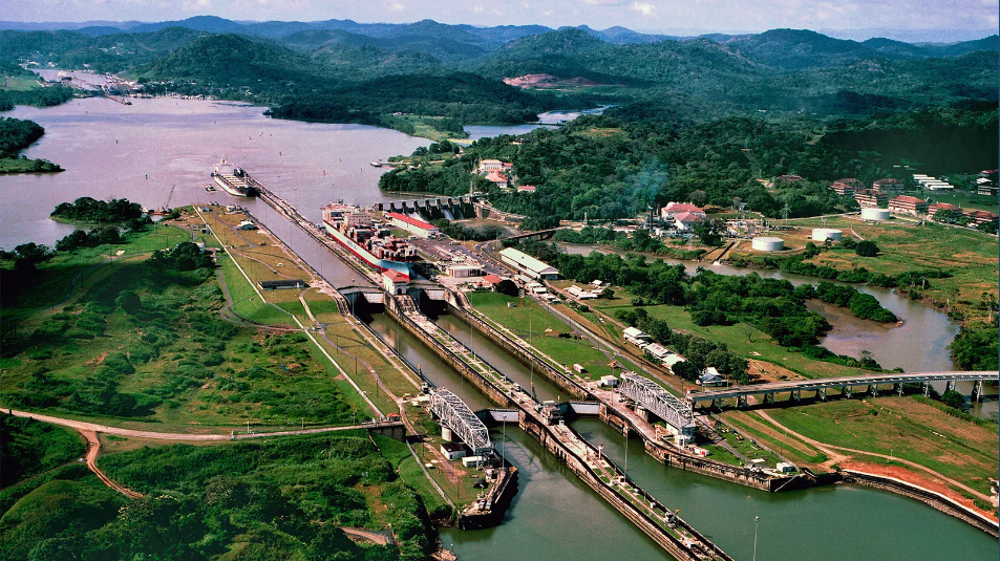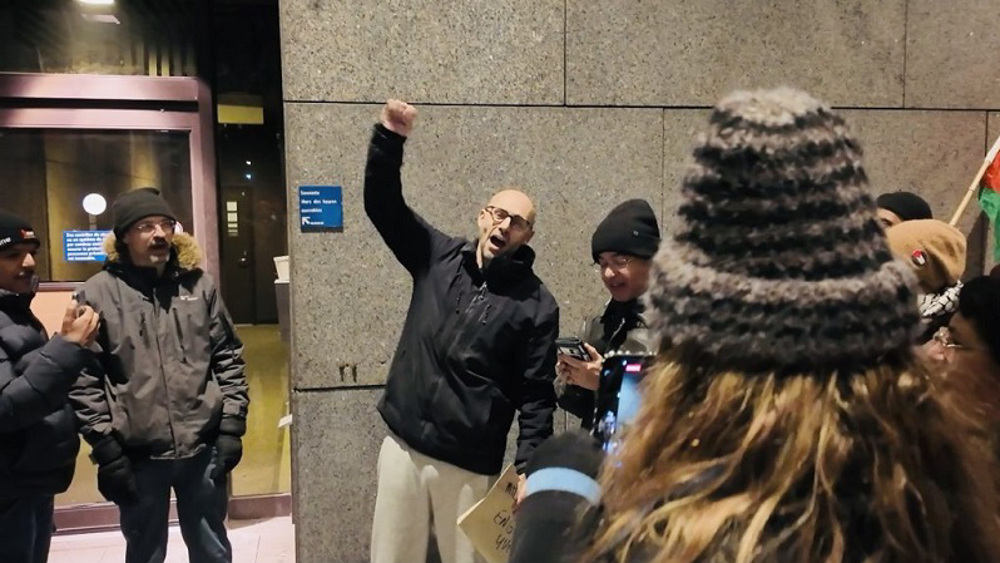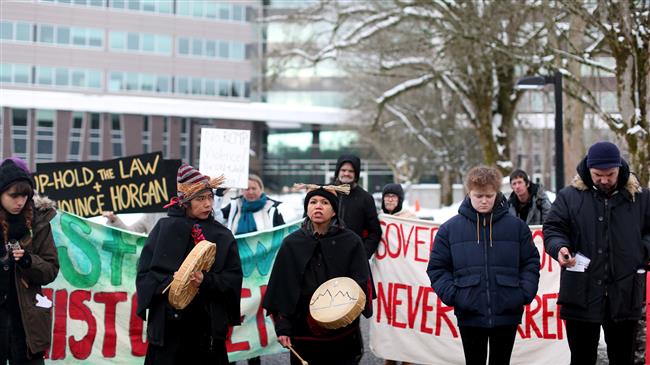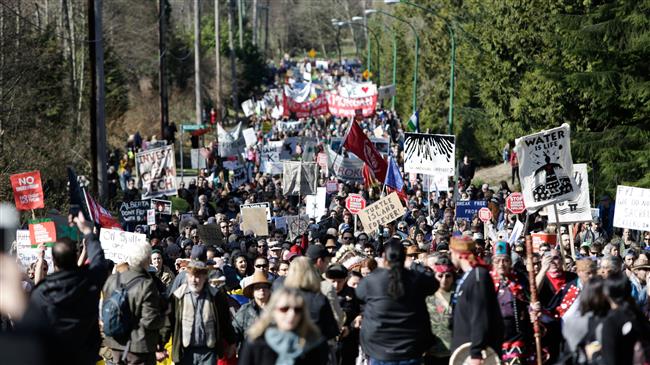Protests against gas pipeline project spread across Canada
Canadians have staged large-scale protests against a new natural gas pipeline across the country, leading to major transportation disruptions, building occupations, and dozens of arrests by police.
The 670-kilometer Coastal Gas Link pipeline project, opposed by indigenous Wet’suwet’en hereditary chiefs, would make it easier to export natural gas in British Columbia but its route goes through indigenous Canadian land.
Several indigenous camps have been set up to block access to pipeline construction sites in protest.
The Royal Canadian Mounted Police have over the past few days intervened to enforce a court order and clear the original protest blocking work on a construction site. That intervention has prompted more protests in solidarity with the indigenous people.
On Monday, dozens of protesters were arrested for trying to block access to the Pacific port of Vancouver.
A major rail line connecting Toronto, Ottawa, and Montreal was also shut down by protesters on Tuesday, forcing more than 20,000 passengers to cancel trips. The Canadian National Railway said it would also close “significant” parts of its network unless rail lines were cleared.
Canadian Transport Minister Marc Garneau expressed concern about the “illegal” and “significant disruption” to rail services.
“We hope this will get resolved as quickly as possible because it’s having an important impact on the economy of the country,” he said, adding that protesting on railway tracks could also be dangerous.
Meanwhile in Toronto, a few dozen protesters took over Crown-Indigenous Relations Minister Carolyn Bennett’s constituency office, demanding that the multi-billion dollar project be scrapped.
In Ottawa, a group of protesters occupied the lobby of the Justice Department, while in Victoria, a number of protesters surrounded the British Columbia legislature, preventing lawmakers’ access.
This is not the first time people march in Canada to protest pipeline expansion projects. In March 2018, Canadians staged a protest rally against the Kinder Morgan’s Trans Mountain pipeline expansion project, expressing alarm at the risk of oil spills and detrimental impacts on the local environment and wildlife.

Panama rejects Pentagon chief's idea of US bases on its soil

Canadian Zionist Lawfare against opponents of Gaza genocide

Trump sends more migrants to El Salvador prisons despite court dispute
VIDEO | Press TV's news headlines
VIDEO | Karachi sees massive march in solidarity with Palestine
VIDEO | Iran marks ‘Operation True Promise’ anniv.
VIDEO | US sanctions deepen Yemen’s food crisis
Next round of negotiations between Iran and US will take place in Europe: Deputy FM
US airstrikes on Yemeni factory kill 6 civilians
Yemeni armed forces shoot down 19th American drone
Israeli settler attacks, displacements increase in the occupied West Bank: OCHA










 This makes it easy to access the Press TV website
This makes it easy to access the Press TV website